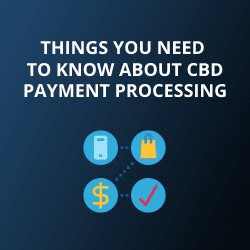Products derived from CBD oils have been in the U.S market for a long time.
But after the legalization of hemp in the 2018 Farm Bill, these products boomed, and the market became even more prominent.
CBD or cannabidiol has been getting more popular because of its health and wellness implications.
While the popularity of CBD is steadily rising, it came with a massive problem because of its association with marijuana.
This is because of the variations in state laws and the ambiguity of their legality.
Nowadays, certain states allow the use of marijuana, while others are still fighting for it.
Unfortunately, the payment processing industry is the same way.
This led to challenges for CBD merchants and how they operate processing payment both in debit and credit cards.
Is CBD Legal?
Hemp is a non-psychotropic species of Cannabis Sativa, which is a plant-derived from CBD.
While cannabis, in general, is still illegal at the federal level, hemp underwent a major reclassification with the help of the 2018 Farm Bill.
This eliminated CBD from DOJ and DEA controlled substance schedules.
When CBD is extracted from hemp, it has less than 0.3% of THC, which stands for tetrahydrocannabinol.
It’s a psychoactive substance that cannabis has in large portions.
The federal government mandated that anything above that level of THC is prohibited.
However, before the 2018 Farm Bill was passed, CBD was still debated among legislators.
Although there is little to no research on CBD, efforts are still being made to prove its effectiveness in the medical field.
CBD as High-Risk
CBD-derived products are becoming more and more popular in recent years, thanks to their medical efficacy.
However, even though that’s the case, the stigma is still there, making all CBD products still considered high-risk.
This means that most financial institutions and payment processors like PayPal still do not accept CBD transactions.
As a result, this made CBD merchants scramble for a payment processor that allows CBD transactions, especially now that the CBD industry is booming.
But what other industries are considered high-risk?
This includes online gaming/dating, the adult industry, Bitcoin trading, travel services, etc.
If you’re a CBD merchant looking for a good CBD payment processor, here are some things you should look for.
Low Price
Any high-risk merchant will be more costly than a low-risk; there’s no denying that.
That said, as a business owner, you should be prepared for higher statements, compliance, monthly, annual fees, etc.
So before you settle, you can shop around for one that has the best price for you.
Reasonable Contracts
It’s an unfortunate reality that CBD merchants always have to look out for longer-term contracts, automatic renewal clauses, early termination fees, and a plethora of unfavorable terms.
Hence, when picking out a payment processor, always look at the contract and your options.
Integrated eCommerce
Of course, if you want to expand your business, you would want to sell your products online, especially now that a large portion of the population is using their smartphones to shop.
While the legal issues concerning CBD products are still making the industry much more complicated, there are trusted payment processors out there that can provide your shop with payment gateways that handle internet transactions.
They even can exclude people who live in a state where CBD is illegal.

CBD eCommerce and Payment Gateways
Speaking of eCommerce, CBD credit card processors and payment gateways are getting more common in retail businesses.
Although the primary function of payment gateways is to allow internet transactions, it also has additional functions such as inventory management, sales analytics, reporting, and employee scheduling.
With integrated platforms, you’ll have the ability to manage your transactions anywhere as long as you have the device that can access them.
However, before using a payment gateway to sell CBD products, you should have an account with a payment service provider that allows this kind of activity.
Many fledgling CBD businesses had their operations halted because their merchant account provider realized their client was selling products derived from hemp.
Also, getting an account shutdown would make it even harder for you to find a merchant account provider.
Hence, you must sign up for a provider that explicitly supports CBD sales.
You should also be extremely honest about the nature of your business during the onboarding process.
Moreover, make sure that you read all of the policies related to your business, especially since there are a lot of them.
Final Words
Even though the 2018 Farm Bill has long since been passed, the stigma on CBD products is still around, making the payment processing industry hesitate about them.
Fortunately, several reputable payment processors and merchant account providers allow CBD sales for business owners.
So if you’re looking to find a CBD payment processor, finding a payment processor can still cause a hassle, but not unlike before.



